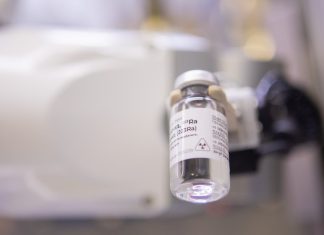The share of Russian veterinary vaccines in the domestic market has reached a record volume. In 2024, it exceeded 67%, with a y-o-y increase of about 15%. Hospitals and pharmacies received 47.7 billion doses of veterinary vaccines, which is almost 124% more than a year earlier. As the press service of the Rosselkhoznadzor informed Izvestia, there is no shortage of vaccines against the most common and economically significant infectious diseases of animals in the country.
For comparison, in 2023, the share of domestic vaccines in the total volume was 53.5%, and in 2022, about 40%. The Rosselkhoznadzor noted that the high rate is due to the withdrawal of foreign manufacturers of veterinary drugs from the Russian market, which forced Russian manufacturers to respond promptly to the current situation.
“The situation has forced us to mobilize and use all available capacities of domestic production and attract investments for their further expansion,” the Service said, noting that since September 1, 2023, 430 permits have been issued to bring vaccines to the market, of which 301 are for Russian–made drugs.
According to the RNC Pharma analytical company, Russian pharmaceutical companies had 40.2% of the market in monetary terms in 2022, 42.8% in 2023, and 47.9% in 2024. However, the growth in packages is not so significant yet: 59.8% in 2022, 60.7% in 2023, and 66.5% in 2024.
However, experts interviewed by the publication noted a shortage of vaccines for cattle, pigs, horses and poultry. “While vaccines are readily available for dogs and cats, procuring vaccines for bigger animals such as cattle or horses can be more difficult,” said veterinarian Mikhail Shelyakov.
Earlier it was reported that Russia plans to supply veterinary drugs and vaccines to the Central African Republic, and may also help in the construction of a modern animal slaughterhouse. Lao Minister of Agriculture and Forestry Linkham Douangsavanh also expressed interest in importing Russian veterinary vaccines into the country.




